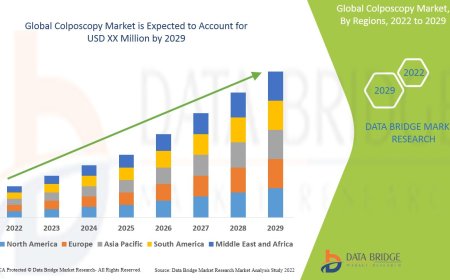Navigating Tomorrow The Art of Strategic Planning Facilitation
I could use this space to tell you about my being a proven executive, business owner, CEO and all that other blah, blah, blah but what I really want to tell you is how much I love coaching.

In todays rapidly evolving landscape, an organization without a clear strategic compass is like a ship adrift. While the need for strategic planning is universally acknowledged, the journey from ideation to actionable roadmap is often fraught with challenges. This is where strategic planning facilitation emerges not just as a helpful tool, but as an indispensable art form.
As we stand in July 2025, reflecting on the turbulent shifts of recent years, the agility and foresight afforded by robust strategic planning have never been more critical. But what exactly does effective facilitation entail, and why is it the cornerstone of a truly impactful strategic process?
At its core, strategic planning facilitation is about guiding a diverse group of stakeholders through a structured process to define, analyze, and articulate an organization's future direction. It's not about dictating strategy; it's about orchestrating a collaborative dialogue that unearths collective wisdom, challenges assumptions, and ultimately, forges a shared vision.
Beyond the Agenda: The Value of a Skilled Facilitator
Many organizations attempt to conduct strategic planning internally, often with mixed results. While intentions are good, internal biases, power dynamics, and a lack of specialized process expertise can hinder open communication and objective analysis. This is precisely where an external, skilled strategic planning facilitator proves invaluable.
A seasoned facilitator brings several critical elements to the table:
-
Neutrality and Objectivity: An external facilitator has no vested interest in specific outcomes or pre-existing political agendas. This neutrality fosters an environment of psychological safety, encouraging honest input and challenging conventional thinking without fear of reprisal.
-
Process Expertise: Strategic planning isn't a free-for-all brainstorming session. It requires a carefully designed sequence of activities, from environmental scanning and SWOT analysis to visioning, goal-setting, and action planning. A facilitator possesses the methodological expertise to guide the group through each stage effectively, ensuring all critical areas are addressed.
-
Managing Group Dynamics: Every group has its dynamics. Dominant voices can overshadow quieter ones, conflicts can arise, and discussions can veer off-topic. A skilled facilitator is adept at managing these dynamics, ensuring equitable participation, resolving disagreements constructively, and keeping the group focused on its objectives. They are masters of active listening, powerful questioning, and skillful intervention.
-
Fostering Creativity and Innovation: Strategic planning isn't just about reacting to the present; it's about proactively shaping the future. Facilitators employ techniques that stimulate creative thinking, encouraging participants to challenge the status quo, explore unconventional ideas, and envision bold possibilities.
-
Driving Consensus and Commitment: A strategy is only as good as the commitment it inspires. A key role of the facilitator is to build consensus around decisions, ensuring that all voices are heard and that the final plan is embraced by the entire team. This shared ownership is vital for successful implementation.
-
Time and Resource Efficiency: Without a structured approach, strategic planning can quickly devolve into an unorganized, time-consuming exercise. A facilitator ensures the process stays on track, maximizing the output of valuable executive time and resources.
The Facilitated Strategic Planning Journey: A Glimpse
While each strategic planning engagement is unique, a typical facilitated process often includes phases such as:
-
Preparation and Discovery: The facilitator works with leadership to understand the organization's current state, challenges, and aspirations. This phase involves interviews, data gathering, and stakeholder analysis to tailor the planning agenda.
-
Environmental Scan and Assessment: The group collectively analyzes internal strengths and weaknesses (S&W) and external opportunities and threats (O&T). This involves examining market trends, competitive landscapes, technological advancements, and socio-economic factors.
-
Visioning and Mission Refinement: Articulating a compelling vision for the future and refining the organization's core purpose (mission) are critical steps, providing the guiding star for all subsequent decisions.
-
Goal Setting and Strategy Formulation: Translating the vision into concrete, measurable goals and developing specific strategies to achieve them. This often involves brainstorming and prioritizing initiatives.
-
Action Planning and Implementation Roadmap: Breaking down strategies into actionable steps, assigning responsibilities, setting timelines, and defining key performance indicators (KPIs) for tracking progress.
-
Communication and Buy-in: Developing a plan to communicate the new strategy throughout the organization, fostering understanding and commitment at all levels.
Beyond the Workshop: Sustaining Strategic Momentum
The facilitator's role doesn't end when the strategic plan is documented. A truly effective engagement will include guidance on how to embed the strategy into daily operations, establish regular review mechanisms, and ensure accountability. This might involve recommending follow-up sessions, creating communication frameworks, or advising on leadership roles in implementation.
In an era where disruption is the norm and agility is paramount, organizations cannot afford to leave their future to chance. Strategic planning facilitation is the investment that empowers leaders to not just react to change, but to proactively shape their destiny. Its the catalyst that transforms aspiration into action, ensuring that your organization is not merely surviving, but thriving in the years to come.




























